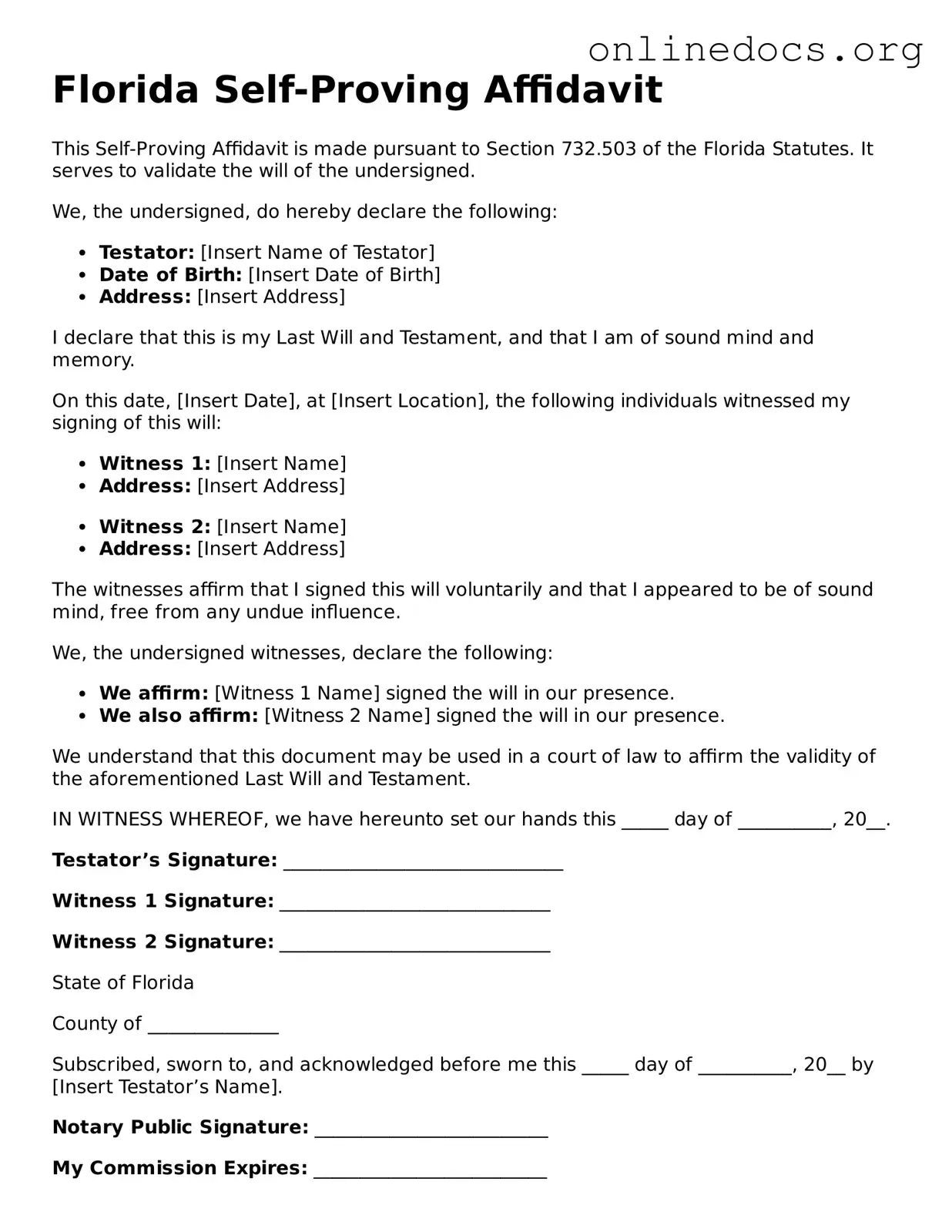Fillable Self-Proving Affidavit Form for Florida
A Florida Self-Proving Affidavit is a legal document that allows a testator’s will to be validated without the need for witnesses to appear in court. This form provides a way to simplify the probate process, ensuring that the wishes of the deceased are honored efficiently. By using this affidavit, families can avoid potential disputes and streamline the administration of the estate.
Access Editor Now
